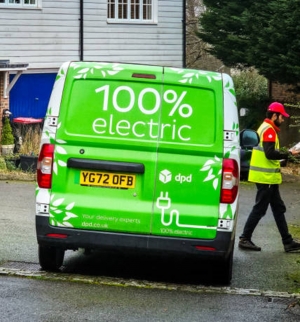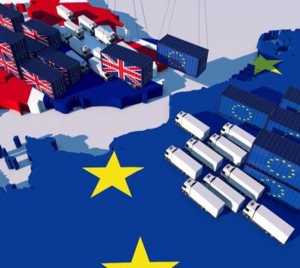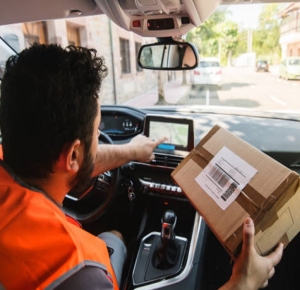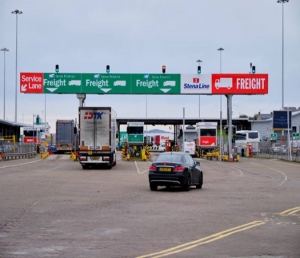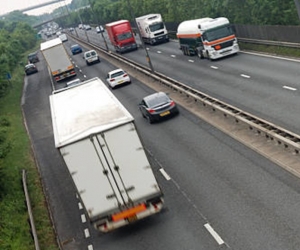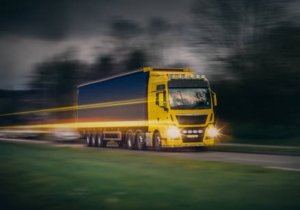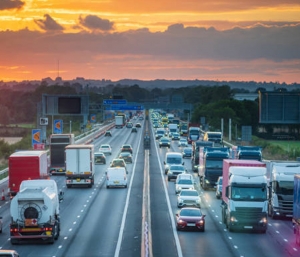Test Owner
Challenges Hamper Electric Van Transition for Fleet Operators
Fleet operators are struggling with the shift to electric vans due to high upfront costs and insufficient charging infrastructure, according to a Department for Energy Security and Net Zero report conducted by TRL. Despite policies phasing out internal combustion engine vehicles by 2030, the move to electrify commercial vans is progressing slower than expected.
The report, EV Adoption and Smart Charging for Electric Vans and Commercial Fleets, highlights operational issues. Fleet operators rely on overnight depot or home charging due to limited public infrastructure, long wait times, and inconsistent availability. Electric vans are mainly used for shorter routes, with operators cautious about range limitations, particularly for heavily loaded vehicles, as real-world performance often falls short of advertised ranges.
Smaller fleets face significant financial barriers, with the cost of installing depot chargers and upgrading power supplies proving prohibitive. Driver reluctance adds to the challenge, with concerns over range anxiety, logistical difficulties with home charging, and a lack of financial incentives slowing adoption. Inconsistent public charging further complicates mid-shift charging for many fleets.
The report calls for expanded grants for depot infrastructure upgrades, incentives for shared charging facilities, and dedicated public charge points for commercial vehicles. It also suggests providing better real-world range data, simplifying smart charging adoption, and fostering collaboration within the industry to share solutions and best practices.
Handling Stressful Deadlines
Deadlines are a critical part of the logistics industry. As an agency driver, meeting these deadlines ensures smooth supply chain operations, client satisfaction, and a strong professional reputation. However, tight schedules and unexpected delays can make deadlines stressful. This guide offers practical strategies to help you handle the pressure effectively.
Why Are Deadlines Stressful in Logistics?
Tight Schedules: Deliveries often need to be made within strict timeframes, leaving little room for error.
Unforeseen Delays: Traffic, vehicle breakdowns, and border checks can disrupt even the best plans.
High Expectations: Clients rely on drivers to ensure timely deliveries, which can feel like a heavy responsibility.
Stress from deadlines can impact your driving performance, safety, and overall wellbeing, making it crucial to manage these challenges proactively.
Key Strategies for Managing Stressful Deadlines
Plan Ahead
- Review your route and schedule before starting the journey. Use GPS and traffic management tools to anticipate potential delays.
- Check weather conditions and vehicle readiness to avoid unnecessary disruptions.
Communicate Effectively
- Keep your agency and client informed of your progress. If delays occur, notify them as soon as possible with an updated ETA.
- Don’t hesitate to ask for clarification if the instructions are unclear.
Break Down the Task
- Focus on completing one part of the journey at a time. Breaking the route into manageable sections can reduce feelings of being overwhelmed.
Stay Calm Under Pressure
- Practice deep breathing or mindfulness techniques during breaks to stay composed.
- Remind yourself that delays happen and focus on what you can control.
Stick to Driving Regulations
- Never compromise safety to meet a deadline. Adhere to speed limits and rest break requirements to avoid accidents or penalties.
Leverage Technology
- Use route optimisation software to find the fastest, most efficient paths.
- Rely on telematics systems for real-time updates on traffic, road closures, or alternative routes.
Learn from Experience
- Reflect on past stressful journeys to identify what worked well and what could be improved.
- Use this insight to better handle similar situations in the future.
The Role of Agencies in Supporting Drivers
A supportive agency can make a big difference in managing stressful deadlines. Look for agencies, like Quicktemp, that:
- Provide clear and realistic expectations.
- Offer 24/7 support for drivers on the road.
- Regularly communicate with clients to mitigate pressure on drivers.
Benefits of Managing Deadlines Effectively
- Professional Growth: Meeting deadlines consistently enhances your reputation with clients and your agency.
- Job Security: Reliable drivers are more likely to be requested for repeat assignments.
- Work Satisfaction: Stress reduction and successful deliveries make for a more rewarding experience.
- Improved Safety: Staying calm and focused ensures safer driving for you and others on the road.
Common Challenges and How to Overcome Them
Unrealistic Deadlines
- Solution: Communicate concerns with your agency early and work together to adjust the plan.
Traffic or Delays
- Solution: Stay informed using real-time traffic apps and keep clients updated about your progress.
Pressure to Rush
- Solution: Remind yourself that safety is the priority. Let your agency handle any concerns about delays.
Personal Stress
- Solution: Take regular breaks, stay hydrated, and maintain a healthy work-life balance to reduce overall stress.
For More Information
Explore Quicktemp’s assignments for agency drivers and take advantage of their support systems to build your career in logistics. Stay organised, stay safe, and excel under pressure: https://www.quicktemp.co.uk/candidates
Disclaimer
This guide is intended for information only and is not an authoritative document. Quicktemp and its affiliates accept no liability for any errors or omissions.
Adapting to Brexit
Brexit has brought significant changes to the logistics and transport sectors, affecting everything from border protocols to driver requirements. As an agency driver, understanding and adapting to these changes is essential for ensuring compliance, maintaining efficiency, and thriving in the post-Brexit environment.
How Has Brexit Impacted the Driving Industry
- Border and Customs Changes
New customs procedures for transporting goods between the UK and the EU have added complexity to cross-border logistics. Documentation such as customs declarations and health certificates is now mandatory. - Driver Shortages
Brexit has exacerbated the driver shortage due to changes in labour mobility, making UK-based drivers even more essential to maintaining supply chains. - Driving Licences and Permits
UK drivers may need additional permits, such as International Driving Permits (IDPs), to operate in certain EU countries. This depends on bilateral agreements with individual countries. - Increased Demand for Drivers
Brexit-related disruptions have led to an increased demand for skilled and adaptable drivers to navigate the new challenges in the logistics sector.
Key Strategies for Adapting to Brexit as an Agency Driver
Understand New Documentation Requirements
Familiarise yourself with the customs and transport documents now required for EU-bound goods, such as:
- Customs Declarations
- Goods Movement Reference (GMR)
- Export Health Certificates (if transporting animal or plant products)
- Ensure you know where and how to access the above documents when working with clients.
Stay Updated on Industry Changes
Keep informed about post-Brexit regulations through government websites, industry news, and updates from your agency.
Attend any Brexit-related training or workshops offered by your agency or clients.
Prepare for Border Delays
Factor in potential delays at ports due to customs checks. Be patient and plan rest breaks accordingly to comply with driving hours regulations.
Use digital tools like traffic management apps to avoid congested routes near borders.
Ensure You Have the Right Licences and Permits
If driving in the EU, check whether you need an International Driving Permit (IDP).
Ensure your Driver CPC qualifications are up to date and recognised in any country you’ll be driving in.
Be Flexible and Adaptable
Brexit has created a more dynamic and uncertain logistics landscape. Clients may require flexibility with schedules, routes, and cargo types.
Show a willingness to learn and adapt to new systems, such as electronic customs platforms.
Common Challenges and How to Overcome Them
Increased Complexity of Jobs
- Solution: Stay informed about new procedures and seek clarification from your agency or clients when needed.
Uncertainty at Borders
- Solution: Plan for delays and maintain open communication with the client to manage expectations.
New Skills and Requirements
- Solution: Take advantage of agency-provided training or seek additional qualifications to stay competitive.
For More Information
Explore Quicktemp’s latest driving assignments to gain hands-on experience in the post-Brexit logistics sector. Stay informed, stay adaptable, and secure your future as an agency driver: https://www.quicktemp.co.uk/candidates
Disclaimer
This guide is intended for information only and is not an authoritative document. Quicktemp and its affiliates accept no liability for any errors or omissions.
Managing Client Relationships
As an agency driver in the logistics sector, you represent not only yourself but also the agency that employs you. Building strong relationships with an agency's clients is essential for ensuring ongoing opportunities, professional growth, and a positive reputation. This guide outlines how to maintain and manage these relationships effectively.
Why Are Client Relationships Important for Agency Drivers
Agency drivers often work with a variety of clients, from small businesses to large logistics companies. Strong relationships can lead to:
- Consistent Work Opportunities: Clients are more likely to request drivers they trust and have positive experiences with.
- Positive Reputation: Your performance reflects on both you and the agency, which can open doors for further opportunities.
- Professional Growth: Clients may provide feedback that helps you improve and excel in your role.
Key Strategies for Managing Relationships as an Agency Driver
- Professional Communication - Be courteous and professional in all interactions, whether in person, via phone, or through email and confirm assignment details (delivery locations, schedules, specific requirements) to avoid misunderstandings.
- Punctuality and Reliability - Arrive on time for all assignments, showing that you value the client’s time and communicate immediately with both the agency and client if delays or issues arise.
- Understand Client Expectations - Familiarise yourself with the client’s specific processes, preferences, and expectations and pay attention during briefings and ask questions if anything is unclear.
- Be Flexible and Adaptable - As an agency driver, you may encounter a range of work environments and demands and flexibility demonstrates your willingness to meet client needs and adapt to changes.
- Represent the Agency Well - Your behaviour reflects on your agency. Maintain a professional appearance, follow safety protocols, and adhere to company policies and treat every assignment as an opportunity to showcase your skills and work ethic.
- Seek Feedback and Act on It - Ask clients for feedback on your performance to identify areas for improvement and use constructive feedback to refine your skills and demonstrate a commitment to excellence.
- Maintain a Positive Attitude - Stay calm and professional, even in challenging situations. A positive attitude can leave a lasting impression on clients.
Benefits of Managing Relationships Well
- Repeat Assignments: Clients are more likely to request drivers who meet or exceed expectations.
- Stronger Agency Reputation: Your professionalism enhances the agency's standing with its clients.
- Career Development: Positive client relationships can lead to longer-term contracts, recommendations, or career advancements.
- Workplace Satisfaction: Building rapport with clients makes for a more enjoyable and rewarding working experience.
Common Challenges and How to Overcome Them
- Last-Minute Changes - Be adaptable and maintain open communication with the agency and clients.
- Unfamiliar Work Environments - Arrive prepared and ask questions to quickly understand procedures and expectations.
- Difficult Clients or Situations - Stay professional, focus on resolving the issue, and seek support from the agency if necessary.
For More Information
Explore opportunities through Quicktemp to gain valuable assignments and experience in the logistics sector. Strengthen your skills as an agency driver and build lasting relationships with clients: https://www.quicktemp.co.uk/candidates
Disclaimer
This guide is intended for information only and is not an authoritative document. Quicktemp and its affiliates accept no liability for any errors or omissions.
Future of Green Logistics
As environmental concerns grow, the logistics sector in the UK is moving towards greener practices to reduce carbon emissions and achieve sustainability goals. For drivers, adapting to green logistics offers the chance to contribute to a cleaner future while staying ahead in an evolving industry.
What is Green Logistics
Green logistics focuses on minimising the environmental impact of transporting goods. This includes adopting eco-friendly technologies, optimising routes, and using alternative fuels. The aim is to balance efficiency with sustainability, helping businesses meet environmental targets and comply with regulations.
Green Initiatives in Logistics
- Electric and Hybrid Vehicles (EVs and HEVs): Many logistics companies are transitioning to electric and hybrid vehicles. These vehicles emit fewer pollutants and reduce reliance on fossil fuels. Drivers of EVs benefit from quieter rides and lower operating costs.
- Alternative Fuels: Cleaner alternatives to diesel, such as biodiesel, hydrogen, and compressed natural gas (CNG), are becoming increasingly popular. These fuels help reduce greenhouse gas emissions and support sustainability efforts.
- Eco-Driving Techniques: Training drivers in fuel-efficient driving, such as avoiding harsh braking and idling, can significantly reduce fuel consumption and emissions.
- Green Warehousing: Logistics hubs are adopting renewable energy, LED lighting, and energy-efficient designs to lower their carbon footprint.
- Load Optimisation: Ensuring vehicles are fully loaded minimises trips, reducing both costs and environmental impact.
- Carbon Offsetting: Some companies are investing in projects like tree planting or renewable energy to offset emissions from their operations.
Why Embrace Green Logistics as a Driver
- Regulatory Compliance: Governments are tightening emissions regulations, and understanding green practices will help you stay ahead of the curve.
- Career Opportunities: Eco-conscious companies are looking for drivers skilled in sustainable logistics practices.
- Cost Savings: Energy-efficient vehicles and eco-driving techniques can significantly reduce fuel costs.
- Positive Impact: Contributing to sustainability efforts allows you to align your work with a meaningful cause.
The Role of Technology in Green Logistics
- Telematics and Fleet Management Software
These tools track fuel consumption and driver behaviour, providing insights to improve efficiency. - Route Optimisation Tools
Advanced algorithms help drivers plan the most fuel-efficient routes, cutting unnecessary mileage. - Electric Charging Infrastructure
Investments in EV charging networks are growing, making it easier for drivers of electric vehicles to recharge during journeys.
Green Innovations to Watch
- Autonomous Electric Trucks: Combining automation with sustainability, these vehicles reduce emissions and improve efficiency.
- Hydrogen Fuel Cell Vehicles: Offering longer ranges, hydrogen trucks are emerging as a sustainable solution for long-haul logistics.
- Circular Supply Chains: Emphasising reuse and recycling within logistics to minimise waste and promote sustainability.
For More Information
Explore Quicktemp’s latest roles and join the drive towards a greener future in logistics. Be part of an industry that’s leading the way in sustainability: https://www.quicktemp.co.uk/candidates
Disclaimer
This guide is intended for information only and is not an authoritative document. Quicktemp and its affiliates accept no liability for any errors or omissions.
Technology in Driving
The logistics sector in the UK is embracing technological advancements to meet rising demands and enhance efficiency. From telematics to autonomous vehicles, technology is transforming the driving industry. If you're considering a career in logistics, understanding the role of technology is essential.
How Technology is Shaping the Driving Industry
Technology is making commercial driving safer, more efficient, and environmentally friendly. Tools like GPS navigation, telematics systems, and advanced driver-assistance systems (ADAS) are revolutionising how drivers work. These innovations not only simplify tasks but also improve overall logistics operations.
Essential Technologies for Commercial Drivers
- Digital Tachographs: Mandatory for HGV drivers, these devices record driving time, speed, and distance. They help drivers stay compliant with working time regulations and prevent fatigue-related incidents
- GPS and Route Planning Tools: Advanced GPS systems assist drivers in navigating unfamiliar routes efficiently, reducing fuel consumption and delivery times. Route planning software also accounts for traffic, road restrictions, and weather conditions
- Advanced Driver-Assistance Systems (ADAS): Features like lane departure warnings, adaptive cruise control, and emergency braking systems enhance safety for drivers and other road users
- Fleet Management Software
Logistics companies use these tools to track deliveries, schedule maintenance, and monitor vehicle utilisation, ensuring smooth operations and minimal downtime. - Telematics Systems: Telematics combines telecommunications and informatics to provide real-time data on vehicle performance, location, and driver behaviour. Companies use this data to optimise routes, monitor fuel consumption, and ensure compliance with regulations
Why Embrace Technology as a Driver?
Adapting to new technologies benefits both drivers and employers. Here’s why:
- Improved Safety: ADAS and telematics reduce the risk of accidents and promote safer driving practices.
- Higher Efficiency: GPS and route optimisation tools save time and fuel, making your job less stressful.
- Career Growth: Familiarity with technology can set you apart and open doors to advanced roles in logistics and fleet management.
- Environmental Impact: Technologies like fuel monitoring systems help reduce emissions, contributing to a greener planet.
The Future: Autonomous Vehicles and Beyond
Autonomous vehicles (AVs) are set to revolutionise the logistics industry. While fully self-driving HGVs are still under development, semi-autonomous features like platooning (where trucks follow each other in close succession) are already being tested. Staying informed about these trends will help you remain competitive in the industry.
Understanding Key Terms
- Platooning: A convoy of trucks connected wirelessly, moving in unison to save fuel and reduce emissions.
- Geofencing: Virtual boundaries set for vehicles, used to monitor and control their movements.
- Dashcams: Cameras installed in vehicles to record driving footage, often used for safety and legal purposes.
For More Information
Explore Quicktemp’s latest roles and discover how technology is shaping the future of driving. Stay ahead of the curve and join the tech-driven evolution of logistics today: https://www.quicktemp.co.uk/candidates
Disclaimer
This information has been gathered from sources including GOV.UK and RoSPA. Although every effort has been made to ensure accuracy, Quicktemp and its affiliates accept no liability for any errors or omissions.
Hauliers Demand Clarity on Holyhead Port Reopening
Haulage firms are calling for improved communication regarding the reopening of Holyhead, one of the UK’s busiest ports, which has been closed since Storm Darragh caused significant damage. Located in Anglesey, north Wales, the port is not expected to reopen until at least 15th January, causing severe disruption to the vital sea link between north Wales and Dublin.
Ger Hyland, president of the Irish Road Haulage Association (IRHA), highlighted the financial and logistical strain on hauliers, describing the closure as costly both in terms of money and drivers’ time. He criticised the lack of clear updates, saying: "If we’d known from the outset that the port wouldn’t be operational, we could have made plans and avoided losing five crucial days rerouting freight."
Holyhead typically handles 1,200 lorries and trailers daily and serves two million passengers annually. With ferry services suspended, alternative routes from Dublin to Liverpool, Heysham, Fishguard, and Belfast to Cairnryan have been implemented. However, the disruption has already impacted industries like postal services, with Ireland’s national post abandoning Christmas deliveries via Holyhead.
Plaid Cymru leader Rhun ap Iorwerth stressed the strategic importance of Holyhead and called for urgent collaboration between the Welsh and UK governments. Meanwhile, Irish Transport Minister Eamon Ryan assured stakeholders that securing alternative routes and resolving the Holyhead issue remains a priority, though hauliers warn delays could lead to layoffs and financial strain without additional support.
New Year Reminder for Drivers: Stay Safe Around HGVs
As the New Year begins and roads remain busy, motoring experts are reminding drivers to take extra care when overtaking heavy goods vehicles (HGVs) on motorways. Specialists from Smith Bros emphasised the importance of understanding HGV blind spots, stating: “HGVs have much larger blind spots than cars. If you can’t see the driver’s mirrors, they likely can’t see you either. Avoid staying in these areas for too long.”
They also advised drivers to give HGVs plenty of space when overtaking and avoid cutting back in too soon, as these vehicles require longer stopping distances, particularly in adverse weather or when navigating corners. Drivers were reminded of the specific speed limits for HGVs, which allow up to 50mph on single carriageways, 60mph on dual carriageways, and a maximum of 60mph on motorways for vehicles over 7.5 tonnes.
European regulations further require larger vehicles to have speed limiters capped at 56mph, ensuring they stay within national speed limits while allowing slight flexibility for overtaking or downhill driving. Despite these allowances, drivers should remember that speeding fines in the UK start at £100, along with three penalty points on their licence.
As we settle into the New Year, these reminders serve to encourage safer driving practices, ensuring all road users remain vigilant and cautious around larger vehicles.
Hydrogen Truck Plans for Wallsend Await Government Funding
Up to 80 hydrogen-powered trucks could be operating around Wallsend within five years if French-owned hydrogen producer Lhyfe secures government funding. The company has applied for support under the second Hydrogen Allocation Round (HAR), aiming to build a 20MW hydrogen production plant near Neptune Energy Park. The proposed facility, capable of producing eight tonnes of hydrogen daily, is contingent on government subsidies and planning approval.
Lhyfe, which operates green hydrogen plants across Europe, is targeting Wallsend as its first UK project. Boris Davis, head of business development for Lhyfe UK, said the country’s hydrogen strategy, introduced by former Prime Minister Boris Johnson, provides a strong foundation for development. If approved, the plant will use renewable electricity to power an alkaline electrolyser, with half its output supplied via pipeline to a neighbouring industrial user and the rest transported to a local haulier with a fleet of 80 trucks.
Davis highlighted the appeal of green hydrogen for operators unable to transition to battery electric vehicles due to grid limitations or operational requirements. However, he acknowledged the challenges of efficiency losses in hydrogen production, storage, and transport. The project will rely on renewable power purchase agreements to meet low-carbon criteria, although emissions are not entirely eliminated.
While the plant’s hydrogen production has clear demand, the by-product of pure oxygen currently lacks a buyer and would be released into the atmosphere. If approved, the facility is expected to begin operations in the latter half of the decade, supporting the UK’s transition towards cleaner transport solutions.
HGV Driver Numbers Surge Amid Recruitment Success
The UK has seen a significant rise in the number of HGV drivers, with figures from Logistics UK showing an increase of nearly 55,000 drivers in the past year – a growth of almost 21%. Targeted efforts to tackle the driver shortage, which worsened two years ago, are paying off, with 31,630 drivers under 35 joining the workforce between Q3 2023 and Q3 2024.
While the rise in younger drivers is encouraging, Logistics UK warns that the industry remains heavily reliant on older workers, with over 53% of drivers aged 50 or above. Bethany Windsor, head of skills policy at Logistics UK, highlighted the success of recruitment campaigns, improved pay, and government-backed training initiatives in addressing the workforce gap but cautioned that deeper challenges persist.
“It’s positive to see younger drivers entering the profession, but issues surrounding pay, working conditions, and ageing demographics need long-term solutions,” Windsor said. “Sustainable strategies, rather than focusing solely on headcounts, are key to tackling the sector’s challenges.” Windsor also praised initiatives like Generation Logistics for raising awareness and urged the government to extend funding for these programmes into 2025.
Logistics UK’s employment update revealed ongoing recruitment difficulties for skilled roles like technicians, with over half of businesses (51.8%) reporting severe shortages. Windsor called for a shift in public perception, positioning logistics as a viable, long-term career akin to retail or healthcare.


